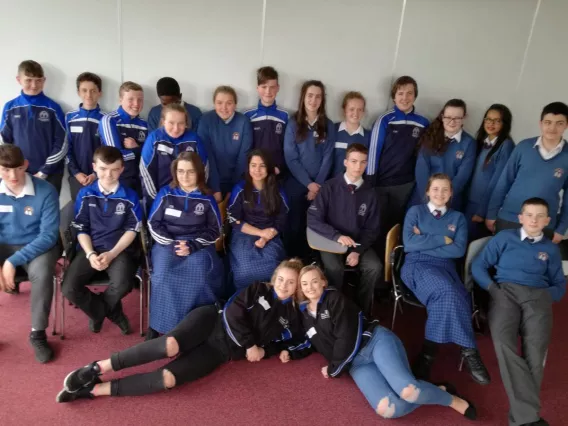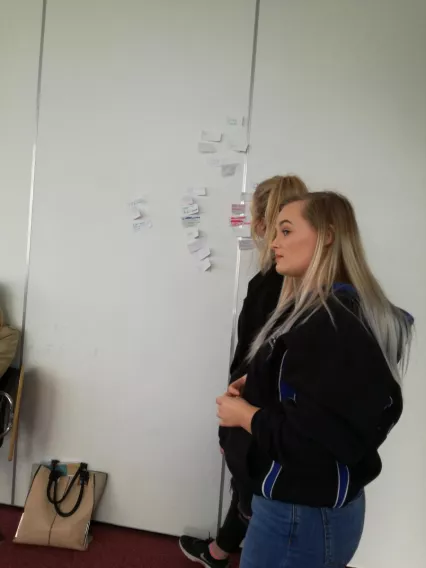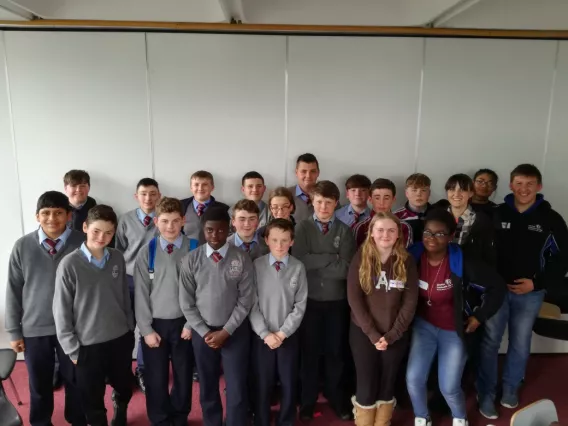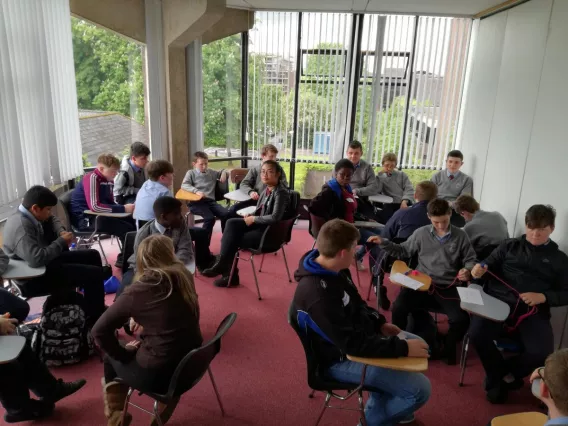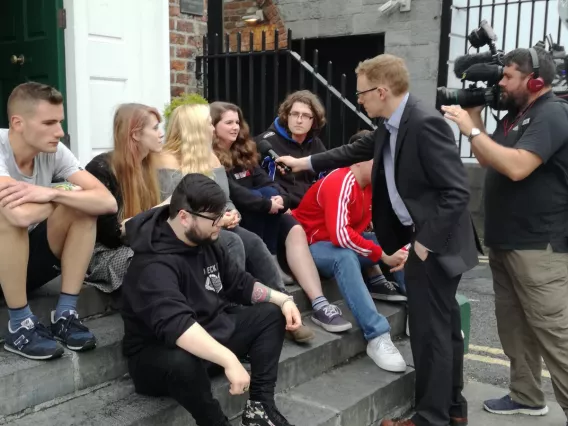Project
The Limerick Be Heard #Youth Ambassadors for Democracy programme is co-designed by young people and for young people, with support from university and youth services staff. The project aims to develop civic engagement and political understanding for the promotion of human rights and democracy.
The premise of this collaborative project is that the shared expertise in youth work facilitation and political agency can be used to develop a programme of engaging, interactive and youth-friendly workshops and related activities that can be used by young people in peer to peer workshops designed to foster a sense of political engagement and empowerment.
Five youth groups have been selected by Limerick Youth Services, all in Limerick’s inner city. In addition, this project is being developed in collaboration with other ‘mirror groups’ operated by international project partners in the USA and South Africa. This enables the project to transcend the local and develop an international consciousness regarding human rights, global citizenship and the importance of Youth Voice as a vehicle for change.
The project is overseen by an Advisory Board constituting representatives from Limerick Youth Services, Limerick Comhairle na nOg, the Department of Politics and Public Administration, UL, plus youth representatives from the Limerick Be Heard #Youth Engage project that helped to co-design the programme content. The Advisory Board supports the work of this project by providing feedback, advice and ideas to the project participants. Community Evaluation of the project is designed into the project from start to finish.
Learning
This module combines class room based theoretical insights into the motivations that underpin political action, including insights from new social movements theory and rational choice approaches, with a selection of case studies to demonstrate alternative forms of political behaviour. Module delivery combines traditional lecture based content, with a series of practical exercises, designed to support knowledge of, and capacity building for, increased political understanding and civic engagement for the promotion and protection of human rights and democracy. Students taking this module will be prepared to engage in supporting research, preparation of group activities and group facilitation with Young People taking the Youth Ambassadors for Democracy programme.
One of the greatest contemporary threats to our capacity to build a social and economic framework that promotes and protects social justice is increasing political disillusion and disengagement. The rights of the most vulnerable are only upheld by the constant vigilance of empowered citizens willing to speak on their behalf. In the face of increasing political cynicism, apathy and isolation, there is a need to combat stereotypical attitudes towards young people regarding their capacity and commitment to be involved in positive and sustainable political change.
Implementation of the project will comprise the recruitment of 5 local groups of Young People who will participate in the Limerick Be Heard # Youth Ambassadors for Democracy’ programme. This programme is supported by UL Practicum students and staff from Limerick Youth Service and the Department of Politics and Public Administration, University of Limerick.
There will be two assessments points to this module, each worth 50% of your final mark. The first assessment will comprise the creation of a Reflective Portfolio to review the #Youth Ambassadors for Democracy Programme and your participation in it. The second assessment will be an essay. Guidelines concerning the creation of portfolios, and final essay topic questions are available from the module’s sulis site.
Research
The research takes a social identity approach to examine whether collective identities are developed through group participation and whether or not they can support empowered citizenship and asks six questions:
1] Do the group workshops facilitate collective identification among participants?
2] Are identity processes promoting a sense of empowered citizenship?
3] How effective is the workshop approach in promoting empowered citizenship?
4] Does collective identification have a causal relationship with empowered citizenship?
5] Do sites differ in their development of empowered citizenship?
6] How do the sites overcome differences in power/privilege within the participating groups (in terms intersecting identities?
Longitudinal survey design and focus groups will be conducted in all study sites and an ethnographic observation study in one selected site, intended to create an evidence base to increase the reach and impact of the projects.
This research addresses UN Sustainable Development Goal 16: to ‘promote peaceful and inclusive societies for sustainable development, to provide access to justice for all’, goal 10, ‘reduced inequalities’ and goal 4, ‘quality education’. This research will evaluate interventions in different socio-cultural contexts, which set out to promote empowered citizenship among their participants using a group approach. Increasing evidence from the Social Identity Approach (SIA) (Tajfel & Turner, 1979; Turner, Hogg, Oakes, Reicher, & Wetherell, 1987) shows how group interventions can promote identity resources, which may be beneficial to those who participate. This research will explore identity processes and mechanisms through which individuals can gain from such group interventions, and begin to unpick if, when and why group interventions provide positive, ‘social cure’ effects for health outcomes, among diverse groups of people (Jetten, Haslam & Haslam, 2012). The proposed research is innovative, aiming to build on these ideas and investigate if similar identity processes and mechanisms are involved in interventions aimed at promoting empowered citizenship. The novelty of this research is that the links between participation, empowerment and social identities are underexplored (Drury & Reicher, 2009; Campbell, & Jovchelovitch, 2000).
The proposed research forms the basis for an IRC CAROLINE project proposal, hosted by UL in partnership with international partners IFWEA and IASEW. The research will be subject to ethical protocols pertaining in each of the three mentor institutions, and subject to periodic review by the IRC. A reflective and responsive review process by all participating stakeholders is integral to the project design. Academic integrity will be governed by anonymous international peer review as part of the publication plan.
Resources
